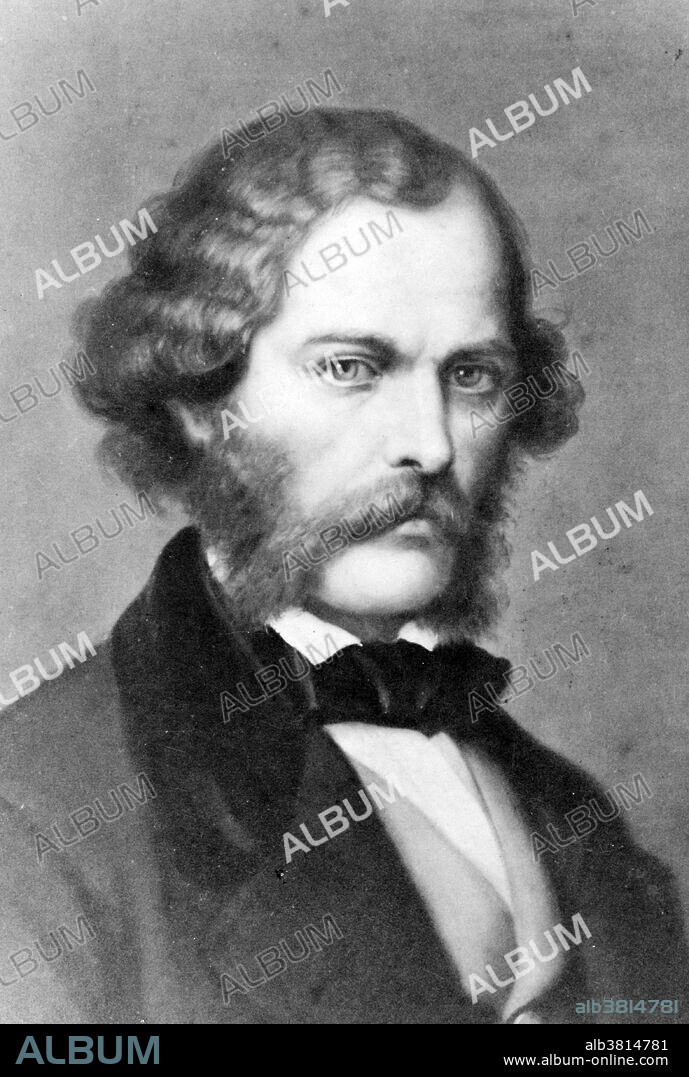alb3814781
George Henry Lewes, English Philosopher and Critic

|
Añadir a otro lightbox |
|
Añadir a otro lightbox |



¿Ya tienes cuenta? Iniciar sesión
¿No tienes cuenta? Regístrate
Compra esta imagen.
Selecciona el uso:

Título:
George Henry Lewes, English Philosopher and Critic
Descripción:
Traducción automática: George Henry Lewes (18 de abril de 1817 - 30 de noviembre de 1878) fue un filósofo y crítico literario y teatral inglés. Formó parte de la efervescencia de ideas de mediados de la época victoriana que alentaba el debate sobre el darwinismo, el positivismo y el escepticismo religioso. Hoy en día es más conocido por haber vivido abiertamente con George Eliot, un alma gemela cuya vida y escritos se enriquecieron con su amistad, aunque nunca se casaron. No era inusual que los hombres de la sociedad victoriana tuvieran aventuras amorosas; Charles Dickens, Friedrich Engels y Wilkie Collins habían tenido relaciones serias con mujeres con las que no estaban casados, aunque de forma más discreta que Lewes. Lo que resultó escandaloso fue la abierta admisión de la relación por parte de Lewes. En 1845-46, Lewes publicó Historia biográfica de la filosofía, un intento de describir la vida de los filósofos como una labor infructuosa y siempre renovada para alcanzar lo inalcanzable. El resultado final de su progreso intelectual es Los problemas de la vida y del espíritu. Su muerte repentina interrumpió la obra, pero es lo suficientemente completa como para permitir un juicio sobre las concepciones maduras del autor sobre problemas biológicos, psicológicos y metafísicos. Murió en 1878 a la edad de 61 años.
George Henry Lewes (April 18, 1817 - November 30, 1878) was an English philosopher and critic of literature and theatre. He became part of the mid-Victorian ferment of ideas which encouraged discussion of Darwinism, positivism, and religious skepticism. He best known today for having openly lived with George Eliot, a soul-mate whose life and writings were enriched by their friendship, although they were never married. It was not unusual for men in Victorian society to have affairs; Charles Dickens, Friedrich Engels and Wilkie Collins had committed relationships with women they were not married to, though more discreetly than Lewes. What was scandalous was the Lewes' open admission of the relationship. In 1845-46, Lewes published The Biographical History of Philosophy, an attempt to depict the life of philosophers as an ever-renewed fruitless labor to attain the unattainable. The final outcome of his intellectual progress is The Problems of Life and Mind. His sudden death cut short the work, yet it is complete enough to allow a judgment on the author's matured conceptions on biological, psychological and metaphysical problems. He died in 1878 at the age of 61.
Crédito:
Album / Science Source / Library of Congress
Autorizaciones:
Modelo: No - Propiedad: No
¿Preguntas relacionadas con los derechos?
¿Preguntas relacionadas con los derechos?
Tamaño imagen:
3150 x 4683 px | 42.2 MB
Tamaño impresión:
26.7 x 39.6 cm | 10.5 x 15.6 in (300 dpi)
Palabras clave:
1817. S. XIX • 1878 • ARTE • BIGOTE • BLANCO Y NEGRO • DIBUJO • EPOCA VICTORIANA • EUROPEA • EUROPEAS • EUROPEO • EUROPEOS • FAMOSA • FAMOSO • FIGURA • FILOSOFIA • FILOSOFO • GENTE • GRABADO • HISTORIA DE LA FILOSOFIA • HISTORIA • HISTORICO • HOMBRE • HOMBRES • ILUSTRACION • IMPORTANTE • INGLES • MASCULINO • OBRA DE ARTE • PATILLAS • PERSONA • PERSONALIDAD • PERSONALIDADES • PORTRAIT • RETRATO DE HOMBRE • RETRATO • SIGLO XIX • VICTORIANO
 Pinterest
Pinterest Twitter
Twitter Facebook
Facebook Copiar enlace
Copiar enlace Email
Email
